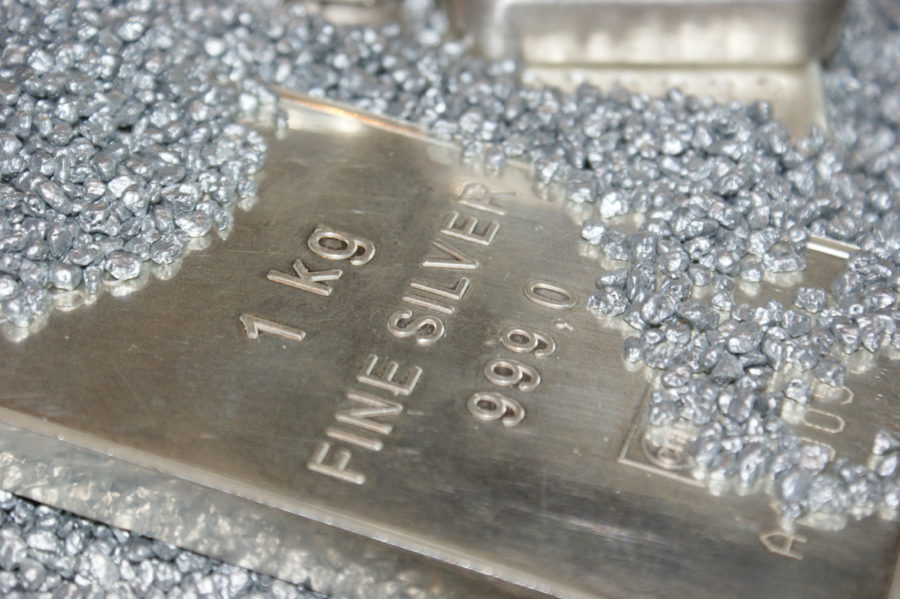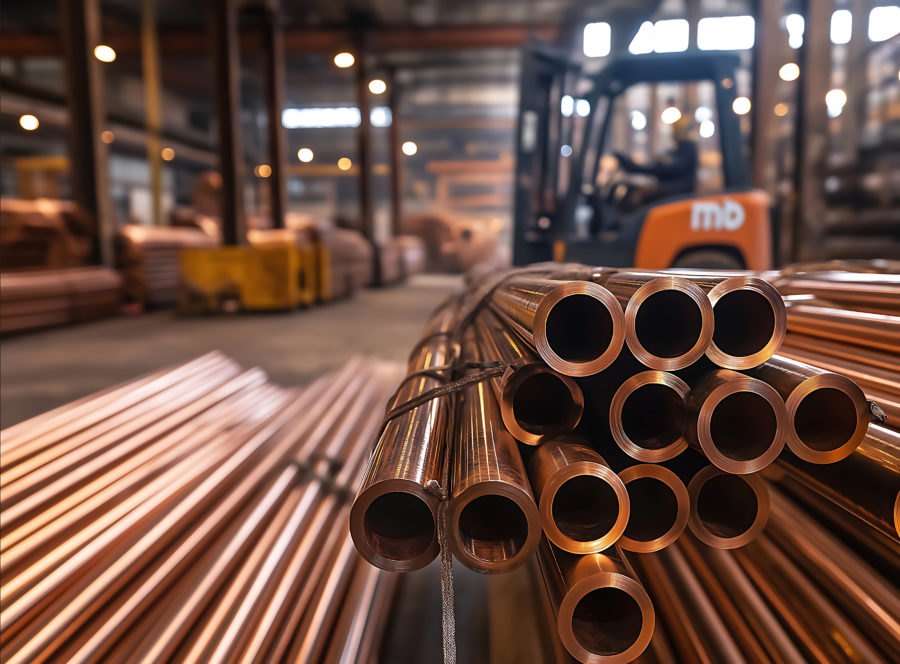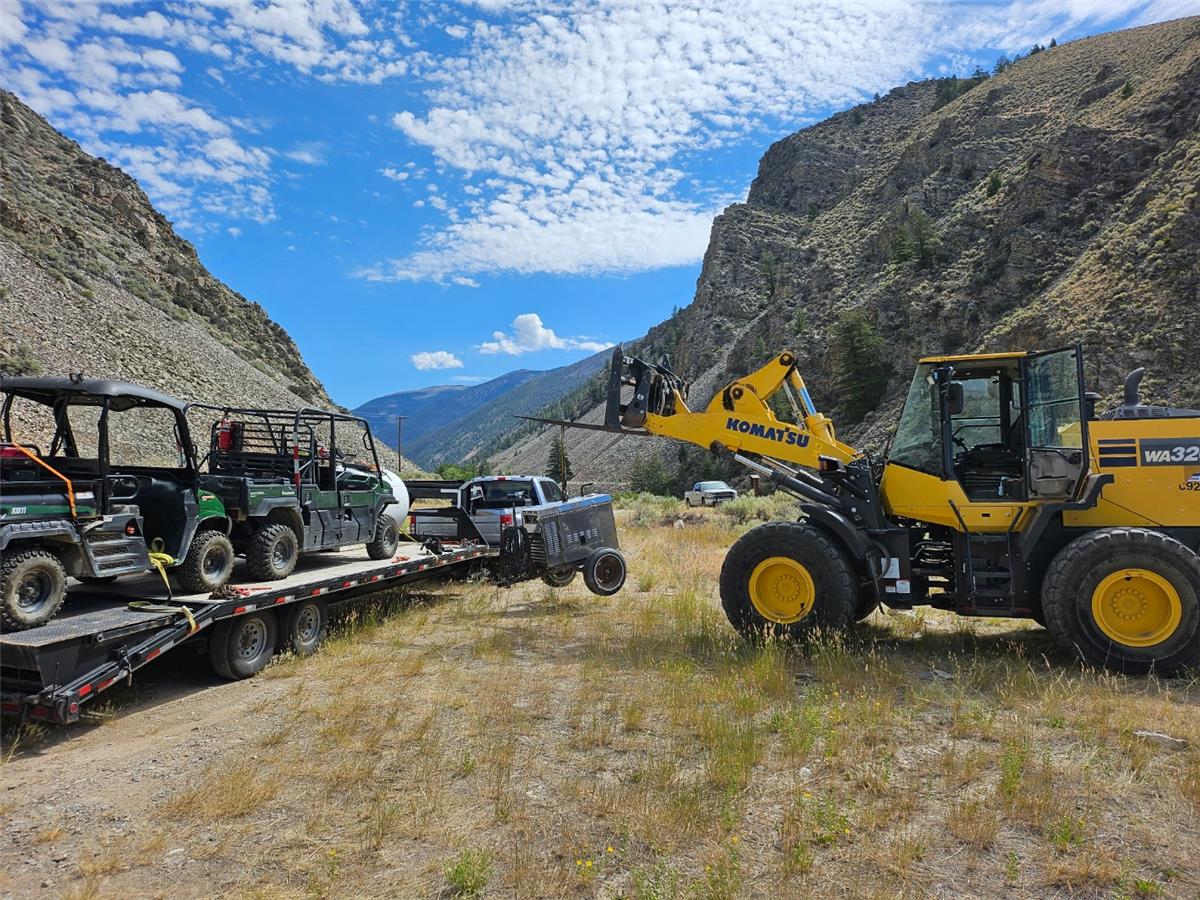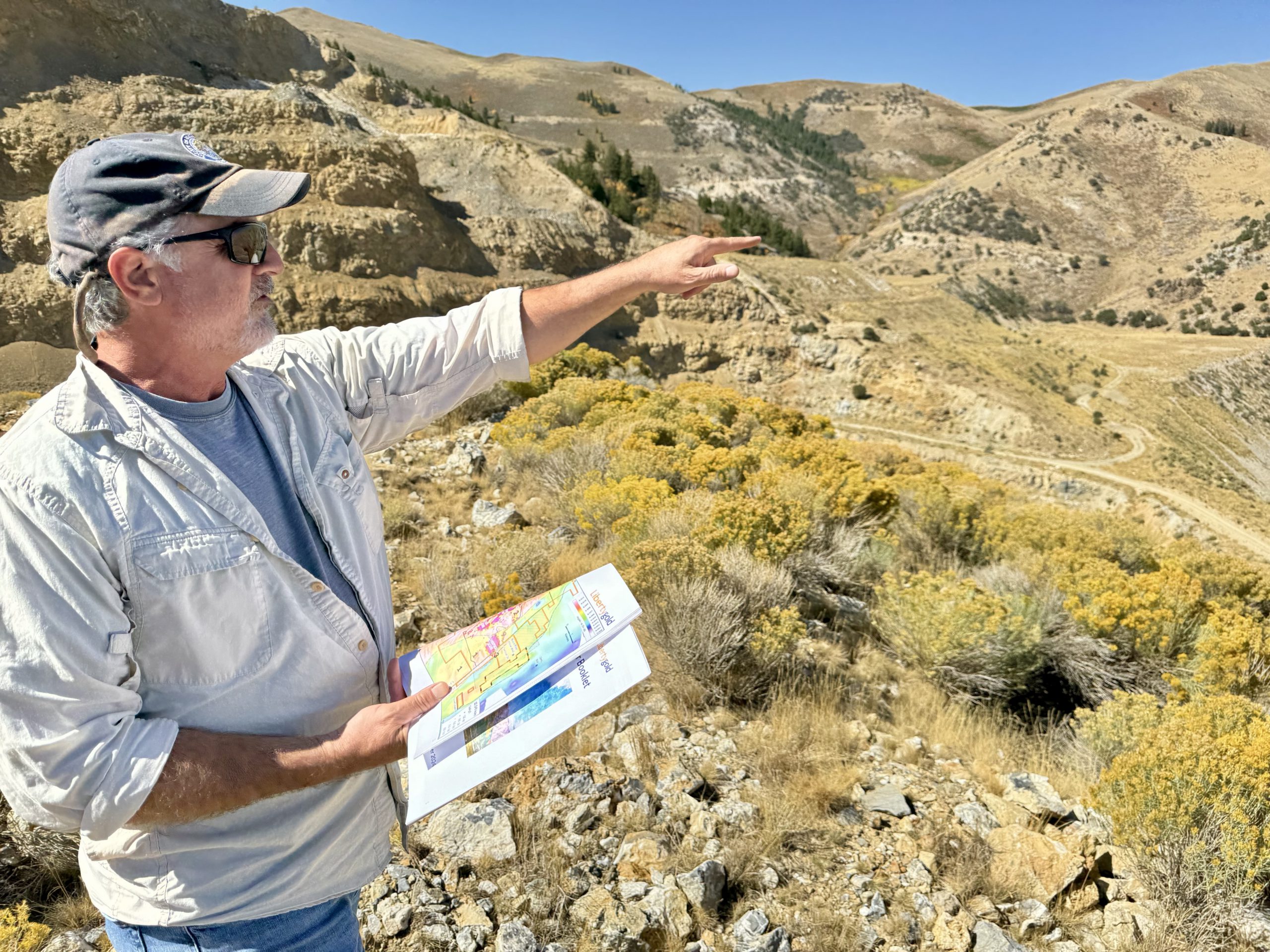LithiumBank Reports Up to 60X Grade Increase and Production of High Purity Lithium Concentrate From DLE Test Work at the Boardwalk Lithium Brine Project, Alberta, Canada
CALGARY, Alberta, Nov. 01, 2022 (GLOBE NEWSWIRE) -- LithiumBank Resources Corp. (TSX-V: LBNK) (OTCQX: LBNKF) (FSE: HT9) (“LithiumBank” or the “Company”) is pleased to announce results from the Direct Lithium Extraction (DLE) test work on brine from the 100% owned Boardwalk Lithium Brine Project in Alberta. Test work results indicate the selected DLE technology to be a highly effective and scalable method of extracting lithium chloride from the Boardwalk brine.
Highlights
- 93% Lithium Chloride recovery achieved in under 60 minutes of extraction processing.
- Testing produced a lithium concentrate with a range between 35-60 times grade increase over the initial raw lithium brine concentration level.
- High purity lithium concentrates between 2,500 - 4,000 mg/L (4 g/L) achieved at the end of the DLE process.
- Boardwalk raw brine characteristics prove to be well-suited in terms of temperature, pH, grade, impurities with the DLE Ion Exchange method.
- Results are expected to be incorporated in the upcoming Preliminary Economic Assessment (“PEA”) that details and estimates the costs of the engineering and design of a commercial-scale lithium processing facility at Boardwalk.
LithiumBank engaged Conductive Energy Inc. (“Conductive”) from Alberta, Canada to test their proprietary Direct Lithium Extraction (“DLE”) technology using brine collected from the Leduc Formation at the Boardwalk project. Conductive has proprietary Ion Exchange (“IX”) material (also known as a bead or resin) that LithiumBank has tested to selectively recover lithium from the Company’s Boardwalk brine. Conductive’s IX materials are safer than other commonly known materials, such as manganese-based sieves, and is produced in Conductive’s own manufacturing facility in North America. Their IX material is currently being piloted on two other Lithium DLE projects in North America.
The purpose of the DLE test work was to determine the ideal parameters whereby the highest level of lithium recovery is achieved in the shortest amount of time while using the least amount of IX material. This test work was successful in achieving 93% recovery of high-purity, high concentrate lithium chloride (LiCl) within 60 minutes. The success of this test work provides the technical support required to progress the Preliminary Economic Assessment (“PEA”) in designing an on-site commercial scale lithium production facility.
Kevin Piepgrass, LithiumBank COO states, “We put Conductive’s DLE technology through a very comprehensive test program and their proprietary ion-exchange material has proven to be very effective in extracting lithium from our Boardwalk brine. The collaboration of Hatch and Conductive Energy Inc. has resulted in high-quality data set that can confidently be used in the processing design and engineering of a commercial scale lithium processing facility. This will be instrumental for delivering a robust PEA of the Boardwalk Lithium Brine Project. As part of LithiumBank’s long-term strategy, the Company continues to build a strong technical foundation in lithium brine development that is expected to benefit Boardwalk as well as the Company’s 100 percent owned Park Place and Kindersley Projects.”
DLE testing was conducted over a four-month period at Conductive’s Calgary laboratory, to examine the IX material’s spectrum of capabilities and limitations. These tests examine the brine characteristics such as temperature, grade, interactions with impurities, and pH, and test it with several different conditions that can be controlled such as;
- Loading capacity at temperatures ranging from 60-80 degrees Celsius;
- Loading capacity with specified amounts of IX material;
- Loading capacity over specified time intervals;
- Lithium recovery after elution (washing of the IX material);
- Elution testing at specified pH levels; and
- Elution testing at specified temperatures.
LithiumBank, Hatch Ltd. (“Hatch”), and Conductive are expected to continue to work together to optimize their DLE process through additional tests. Further testing and pre-concentration may improve the reported recovery and residence time that is expected to be used in the PEA.
The Conductive IX material lithium extraction process has two stages, loading and elution.
The loading cycle is the front end of the DLE process where brine interacts directly with the IX material and undergoes a simple reaction in which lithium ions are preferentially attracted to the IX material. After a specific amount of time, as determined by the test work, the IX material is ‘loaded’ and cannot attract additional lithium ions. This is the end of the loading stage, and the IX material is ready for the elution stage.
The elution stage takes the IX material out of the brine to separate the lithium from the IX material in a washing cycle. The residual lithium-depleted brine is then sent to existing oil wells for reinjection into the subsurface. The elution stage of the DLE achieved concentrations up to 4,000 mg/L (4 g/L) LiCl. The optimization of the elution stage is ongoing and is expected to be between the range of 2,500 – 4,000 mg/L.
The washed IX material can then be reused to recover lithium from the further brine multiple times. The IX material, based on Conductive’s previous experience, is expected to be reused over 1000 times before it reaches its life-cycle (Conductive has not yet conducted tests with Boardwalk brine to measures longevity of the IX material).
After the DLE process, the concentrated brine is then required to undergo additional steps before it is upgraded to a battery grade lithium product such as lithium carbonate (LC) or lithium hydroxide monohydrate (LHM). The processes following the DLE are being evaluated by Hatch and is expected to be incorporated in the PEA.
Figure 1. Boardwalk Lithium Brine Project mineral title map highlighting the "Production Zone"
Brine used in the DLE test work was collected in August 2021 from Well 100/09-26-068-22WS/OO located in the South Sturgeon Lake oilfield (see figure 1), within the “Production Zone”, and has a reported average grade of 73.8 mg/L Lithium (as previously reported in LithiumBank news release dated June 28, 2022).
LithiumBank first engaged Hatch in August 2021 to conduct a comparative study of a number of North American based DLE technologies that could deliver a high purity Lithium Chloride (LiCI) concentrate to be used in commercial, battery grade lithium chemical production from the Boardwalk brine. After an iterative process by Hatch, LithiumBank has narrowed the potential technology providers, with Conductive technology providing the most optimal results.
Table 1. Boardwalk (formally Sturgeon Lake) Leduc Formation Li-brine NI 43-101 inferred resource estimate presented as a global (total) resource.
| Reporting parameter | Leduc Formation Reef Domain |
| Aquifer volume | 321.99 (km3) |
| Brine volume | 16.72 (km3) |
| Average lithium concentration | 67.1 (mg/L) |
| Average porosity | 5.3 (%) |
| Average brine in pore space | 98.0 (%) |
| Total elemental lithium resource | 1,122,000 (tonnes) |
| Total lithium carbonate equivalent | 5,973,000 tonnes (LCE) |
Note 1: Mineral resources are not mineral reserves and do not have demonstrated economic viability. There is no guarantee that all or any part of the mineral resource will be converted into a mineral reserve. The estimate of mineral resources may be materially affected by geology, environment, permitting, legal, title, taxation, socio-political, marketing, or other relevant issues.Note 2: The weights are reported in metric tonnes (1,000 kg or 2,204.6 lbs).Note 3: Tonnage numbers are rounded to the nearest 1,000 unit.Note 4: In a ‘confined' aquifer (as reported herein), porosity is a proxy for specific yield.Note 5: The resource estimation was completed and reported using a cut-off of 50 mg/L Li.Note 6: In order to describe the resource in terms of industry standard, a conversion factor of 5.323 is used to convert elemental Li to Li2CO3, or Lithium Carbonate Equivalent
The Boardwalk (formally Sturgeon Lake) Leduc Formation Li-brine inferred resource, with an effective date of May 18th, 2021, is globally estimated at 1,122,000 tonnes of elemental Li at an average lithium concentration of 67.1 mg/L Li in 16.7 km3 of formation brine volume (Table 2). The global (total) lithium carbonate equivalent (LCE) for the inferred mineral resource is 5,973,000 tonnes LCE at an average grade of 67.1 mg/L Li (as reported May 31, 2022).
Mineral resources are not mineral reserves and do not have demonstrated economic viability. There is no guarantee that all or any part of the mineral resource will be converted into a mineral reserve. While bench-scale, and demonstration pilot plants operated by companies other than LithiumBank are reportedly having success in the recovery of high purity battery-grade lithium from subsurface confined aquifers, DLE technology is in the development stage and has not yet been proven at commercial scale.
The scientific and technical disclosure in this news release has been reviewed and approved by Mr. Kevin Piepgrass (Chief Operations Officer, LithiumBank Resources Corp.), who is a Member of the Association of Professional Engineers and Geoscientists of the province of BC (APEGBC) and is a Qualified Person (QP) for the purposes of National Instrument 43-101. Mr. Piepgrass consents to the inclusion of the data in the form and context in which it appears.
About LithiumBank Resources Corp.
LithiumBank Resources Corp. is an exploration and development company focused on lithium-enriched brine projects in Western Canada where low-carbon-impact, rapid DLE technology can be deployed. LithiumBank currently holds over four million acres of mineral titles, 3.68M acres in Alberta and 326K acres in Saskatchewan. LithiumBank’s mineral titles are strategically positioned over known reservoirs that provide a unique combination of scale, grade and exceptional flow rates that are necessary for a large-scale direct brine lithium production. LithiumBank is advancing and de-risking several projects in parallel of the Boardwalk Lithium Brine Project.
About Hatch Ltd.
Hatch is an engineering firm that has expertise in engineering, procurement, and construction management (EPCM) of lithium processing plants. LithiumBank's management team is working with senior members of Hatch's lithium group, with recent DLE project experience, to assess DLE technology options for the Boardwalk project. The results of the technology assessment performed by Hatch will be used in preparing a NI 43-101 Preliminary Economic Assessment (PEA) in respect of the Boardwalk Project. This PEA is a key steppingstone towards the design of a commercial facility that the Company anticipates will produce battery grade lithium chemical product.
Contact:
Rob ShewchukCEO & [email protected](778) 987-9767
Neither the TSX Venture Exchange nor its Regulation Services Provider (as that term is defined in the policies of the TSX Venture Exchange) accepts responsibility for the adequacy or accuracy of this release.
Cautionary Statement Regarding Forward Looking Statements
This release includes certain statements and information that may constitute forward-looking information within the meaning of applicable Canadian securities laws. All statements in this news release, other than statements of historical facts, including statements regarding future estimates, plans, objectives, timing, assumptions or expectations of future performance, including without limitation, statements regarding: the DLE test work results, the inclusion of DLE test work results and the processes following the DLE in the PEA of the Boardwalk Lithium Brine Project, the effects of the DLE test work results on the Boardwalk, Park Place and Kindersley Projects, the Company, Hatch and Conductive’s ability to optimize their DLE process and the Company’s ability to produce battery grade lithium chemical products. Such statements are forward-looking statements and contains forward-looking information.
Generally, forward-looking statements and information can be identified by the use of forward-looking terminology such as “intends" or “anticipates", or variations of such words and phrases or statements that certain actions, events or results “may", “could", “should", “would" or “occur". Forward-looking statements are based on certain material assumptions and analysis made by the Company and the opinions and estimates of management as of the date of this press release, including: the DLE test work results and the processes following the DLE are expected to be included in the PEA of the Boardwalk Lithium Brine Project, the expected effects of the DLE test work results on the Boardwalk, Park Place and Kindersley Projects and the Company’s anticipated production of battery grade lithium chemical products. Such statements are forward-looking statements and contains forward-looking information.
These forward-looking statements are subject to known and unknown risks, uncertainties and other factors that may cause the actual results, level of activity, performance or achievements of the Company to be materially different from those expressed or implied by such forward-looking statements or forward-looking information. Important factors that may cause actual results to vary, include, without limitation: that the DLE test work results will differ from the anticipated results, that the DLE test work results and the processes following the DLE will not be included in the PEA of the Boardwalk Lithium Brine Project, that the effects of the DLE test work results on the Boardwalk, Park Place and Kindersley Projects will not be as anticipated and that the Company, Hatch and Conductive’s will not produce battery grade lithium chemical products.
Although management of the Company has attempted to identify important factors that could cause actual results to differ materially from those contained in forward-looking statements or forward-looking information, there may be other factors that cause results not to be as anticipated, estimated or intended. There can be no assurance that such statements will prove to be accurate, as actual results and future events could differ materially from those anticipated in such statements. Accordingly, readers should not place undue reliance on forward-looking statements and forward-looking information. Readers are cautioned that reliance on such information may not be appropriate for other purposes. The Company does not undertake to update any forward-looking statement, forward-looking information or financial out-look that are incorporated by reference herein, except in accordance with applicable securities laws.












